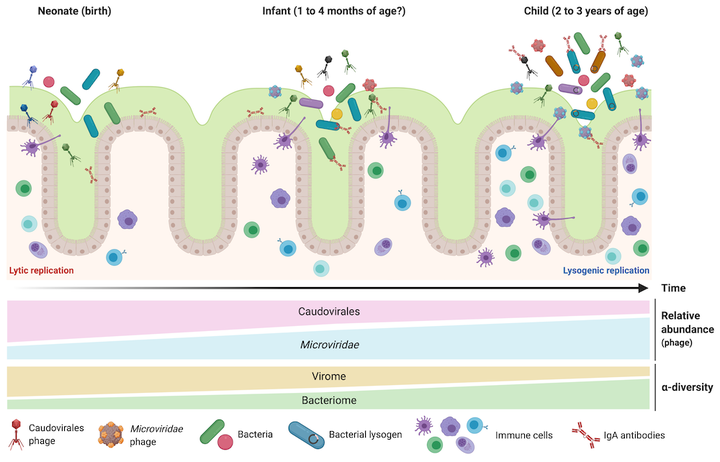 Development of the infant gut microbiome from birth to early childhood
Development of the infant gut microbiome from birth to early childhood
Abstract
The human gut is home to trillions of microorganisms including prokaryotes, eukaryotes, and viruses which each have integral roles in maintaining the stability and resilience of this ecosystem, as well as the health of their human host. Bacteriophages (phages) make up the majority of the viral fraction in the gut and are constantly predating on their bacterial hosts. In this perspective, we first summarize current knowledge on the development of the infant gut microbiome, focusing on phage-bacteria interactions, and speculate on understudied aspects. We then propose a theoretical framework governing the development of the gut virome in early childhood, which is dependent on both phage and bacterial densities and diversity. We conclude by suggesting the use of newly developed single-cell and bioinformatic approaches to decipher the complex network of microbial interactions occurring in the infant gut.